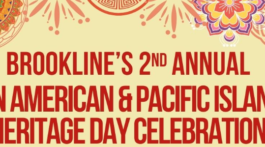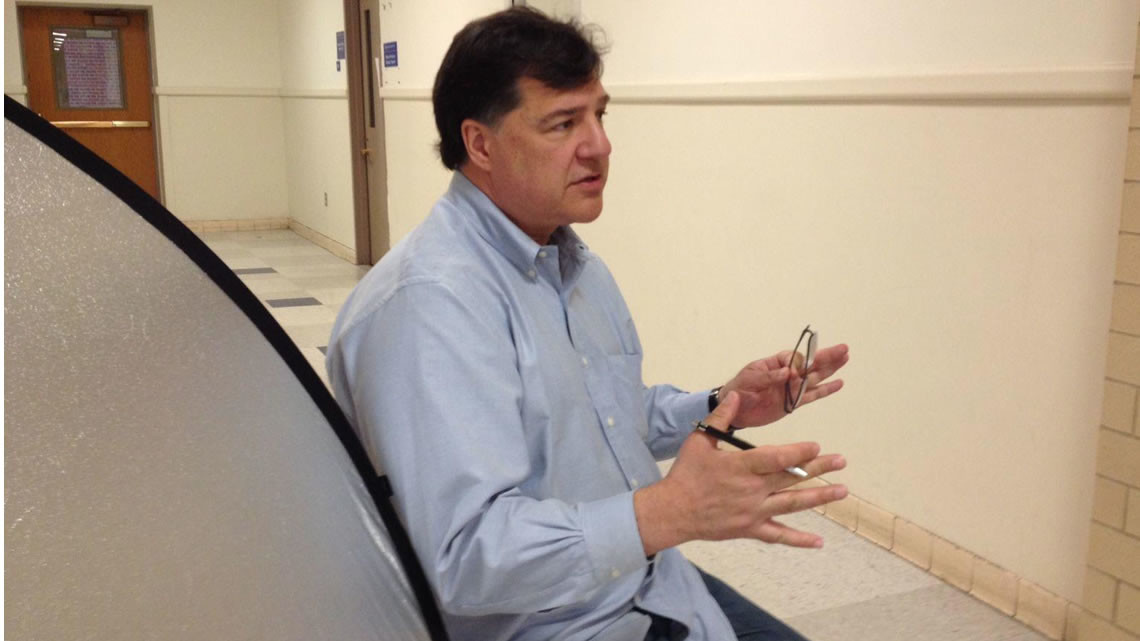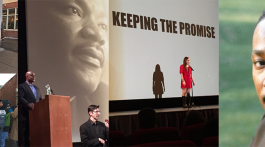There are few topics more challenging to discuss than racism. It’s possible we struggle with the issue of race even more in Brookline than most places, because many of us who live here have strong liberal roots. This isn’t 1965 Selma. We raise money so our kids can learn about what happened in the deep South. We want our children to live in a better world where equality exists for all. The prospect that injustice can exist in our Town in 2015 weighs on our collective conscience to the point that it’s painful to want to look at our situation with honest eyes. We must accept and face that many have different but legitimate views of Brookline’s relationship with racism
It’s easy to fit the Pender/Alston situation into a “one size fits” all box. I don’t believe what happened was due to institutional racism in our town government. Yet this case is clearly about racism. Americans get frustrated, we love easy answers and we hate complexity and nuance.
Clearly, the Town should have had a harassment policy that covered all protected classes long before 2010. But in the absence of that, HR Director Sandra Debow did what she could and acted as quickly as possible, working closing with the Fire Department to remove Pender from his firehouse and launch an immediate investigation. It should also be noted after coming to the Town in 2007, and spending years working on a policy, Debow did introduce one by the end of 2010. Her department is also about to publish their 4th Town Report on Workplace Inclusion and Diversity.
I completely understand and empathize with those in our community who are angry with the Brookline Board of Selectmen and then Fire Chief Skerry. But taking the leap from anger to inferring they intentionally discriminated doesn’t work for me. I’ve worked with Selectman Chair Ken Goldstein who has taken a lot of fire lately. I can say unequivocally he’s a good, caring person and he’s certainly not a racist. I’ve not seen anything to indicate any of the people who serve as Selectmen now or back in 2010 are racists and I know many of them would be hurt by those kinds of accusations. Racism is a complicated issue. People of color experience it in ways those of us who aren’t could never fully appreciate. Calling good people racists in complicated situations solves nothing and certainly doesn’t get us where we want to be as a community.
But good people make mistakes. The Board of Selectmen’s decision to suspend Paul Pender for just seven days was a mistake that didn’t stand the test of time. The Fire Department’s decision to promote Pender to Temporary Captain just seven days after he finished serving his suspension exacerbated the situation. Those combined decisions served to invalidate the pain and suffering caused by centuries of injustice toward the black community and other minorities by allowing hate speech to go without being properly addressed. It sent the wrong message. It didn’t help that a Brookline Selectman, speaking at a diversity meeting, introduced a letter denigrating Gerald Alston that was penned by a former black supervisor on the force.
But it was a mistake in my opinion, not a conscious effort to discriminate and very possibly the result of trying to do just the opposite. The Selectmen weighed too heavily on Alston’s desire to go easy on Pender before levying corrective actions. Victims in these cases often feel a strong desire to have the “issue” just go away, it’s part of being victimized. It can take years for a victim to fully comprehend their experience. The
Selectmen were also looking at Paul Pender as a Brookline hero, the son and namesake of another Brookline hero. In 2008, the younger Pender ran into a burning building to save the life of another firefighter and earned the National Medal of Valor.
So they had a victim who would accept leniency on one hand, a local hero on the other, and no set policy to deal with the situation that could override everything.
Clearly, despite their only being two people on the civil servants list for Captain, promoting Pender anyway was best-case scenario, tone deaf. If it’s true that Gerald Alston lost his spot on his fire truck and Pender’s nephew took it, as was reported to this publication by Alston’s attorney, well that’s not acceptable.
It’s hard to believe that Best Practices were used in deciding to suspend Pender for only seven days and subsequently promoting him to Captain, even if it was temporary. The Town is not serving the best interests of the community by defending these actions or even being silent about them in the wake of an independent investigation.
Moving On
What happened to Pender and Alston after these decisions has been tragic.
Alston was a guy doing the work he loved. He broke his back on the job, his supervisor whom he had come to respect left a racial epitaph on his voicemail, and he received town wide attention as a victim and a whistle-blower. The Town’s own memo reported Alston immediately sought to turn this very negative occurrence into a positive, not for himself but for the entire Town. Then he came back to work, read that his former supervisor had been promoted to Captain, his spot on his fire truck was now reportedly being manned by Pender’s nephew and he was being ostracized by the Fire Department he loved. I don’t see how anyone could have expected Gerald Alston to be bereft of issues after that. Alston has become the cause celeb for groups fighting for racial equality in Brookline. While the intentions to do this may be noble; I can’t see how this helps Gerald. And worse, others are putting him, the victim in this case, on public trial. My hunch is Gerald Alston wishes he could just be a firefighter again and this were all behind him.
I feel badly for Paul Pender. I know, what he said was horrible and I’m not naïve enough to think that was the first time he said it. But I’m not willing to invalidate his life because of it. Trusted sources report he understands the gravity of the remarks he made and he’s consistently expressed his regrets for what he did. My gut tells me if he had to serve a longer suspension and was passed over for temporary promotion, instead of being granted it just days after his suspension ended, Pender and the fire department would have had a greater understanding of the pain his actions caused Alston and our community.
I don’t know if Pender should have been promoted to fulltime Captain in 2013. But I know people can learn from their mistakes, even if those mistakes appear hard-wired. Google Paul’s name and you’ll read about the most tragic mistake of his life. That’s more punishment than he deserves. Making Pender the permanent villain doesn’t fix anything. I have no trouble believing Pender is a good guy despite what he did in 2010. My hunch is Paul Pender wishes he could just be a firefighter again and this were all behind him.
The unintended consequences caused by the BFD and Board of Selectmen’s actions in 2010 need to be addressed. It’s time for both entities to accept responsibility and apologize to the town. This will help ease Alston’s and the community’s suffering. The town deserves a lot of credit for ordering an independent investigation into how this matter came to pass. But I think we all know by Alston and Pender’s plight and recent demonstrations, that mistakes did happen.
Mistakes require apologies so healing can begin. It would lend more credibility if the town offered an apology before the results of the independent investigation were made public. Then I believe we all need to come together as a community, forgive, learn, become better, and move on.
Gerald Alston should be welcomed back to the Brookline Fire Department as a hero because he’s a firefighter, and firefighters are heroes in my book. Paul Pender would serve the community he loves and himself well if he’s the first person to greet Alston at the proverbial door and shepherds Alston through his re-acclamation process. That would make them both even bigger heroes.
Our Community Must Pledge
Maybe we can’t fix the world but shame on us if we ever stop trying. Every person in every home in our community needs to know every human being is an equal with a heart and feelings much like their own. And as such, every human in our community will be treated with dignity and respect no matter their race, creed, religion, sexual preference age, or origin of birth. We must accept that in all cases love will rule the day and hatred will not be tolerated. Since we are human and given the history of the world, that message needs to be repeated over and over and over again.
R. Harvey Bravman, Publisher












